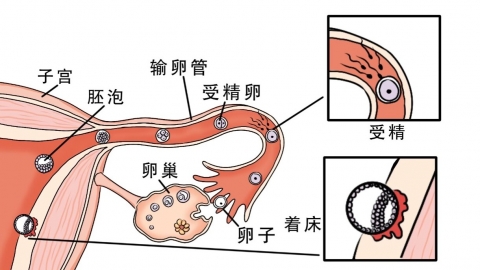Is bleeding always present during implantation of the fertilized egg?
Generally, implantation of the fertilized egg does not necessarily cause bleeding; this depends on individual differences and specific circumstances. A detailed explanation is as follows:

During implantation, the fertilized egg needs to penetrate the surface layer of the endometrium and enter the lower layer. If the endometrium is in good condition and has an appropriate thickness, and the body's self-repair capability is strong, the implantation process will not cause significant damage to the endometrial blood vessels, thus no bleeding occurs. At the same time, although hormone levels fluctuate during implantation, if the fluctuation is minimal, it will not trigger slight endometrial shedding, and therefore will not lead to bleeding. Implantation bleeding occurs only when the endometrium is thin, blood vessels are sensitive, or hormonal fluctuations are significant enough to cause minor endometrial shedding. Thus, not all implantations of fertilized eggs are accompanied by bleeding.
In addition, if bleeding does occur, attention should be paid to the amount and duration of bleeding. If the bleeding is heavy, lasts for a prolonged period, or is accompanied by abdominal pain, medical attention should be sought promptly. Maintaining a regular routine and avoiding strenuous activities in daily life can help create a stable internal environment for the body.




